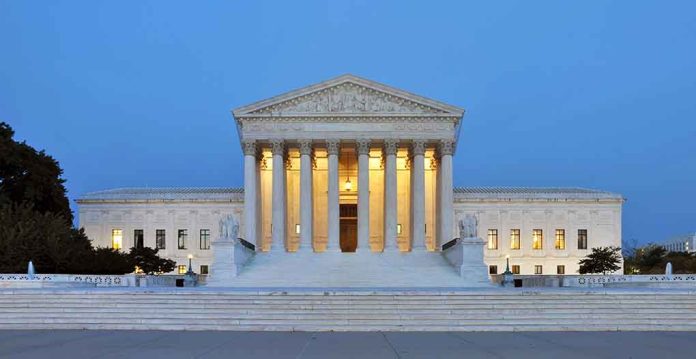
A pivotal Supreme Court case is examining the retroactive application of the Mandatory Victim Restitution Act and its potential conflict with the ex post facto clause.
Key Takeaways
- The US Supreme Court will hear a case from Kansas City involving Holsey Ellingburg, Jr. and retroactive punishments.
- Ellingburg argues that retroactive application of the MVRA, which demands he be liable for restitution payments he was ordered to fulfill under a previous law, violates the US Constitution’s Ex Post Facto Clause against retroactive punishment.
- The Eighth Circuit ruled that the restitution is a civil obligation and not a punishment.
- The outcome could set a precedent for how restitution laws transition between federal statutes.
Ellingburg vs. Mandatory Victim Restitution Act
The US Supreme Court is set to decide a critical legal dispute involving Holsey Ellingburg Jr., whose restitution obligations from a 1995 bank robbery conviction have become a focal point of judicial review. This high-profile case questions whether the Mandatory Victim Restitution Act (MVRA), passed in 1996, can be applied retroactively without infringing the US Constitution’s ex post facto clause, which prohibits laws that criminalize behavior and enact punishments retroactively.
These constitutional concerns have arisen after Ellingburg, sentenced to 27 years and a $7,500 restitution under the older Victim and Witness Protection Act (VWPA), challenged the extension of his liability using the later enacted MVRA. Under the previous law, he was only responsible for making restitution payments for 20 years, and that date passed in 2016. Under the MVRA, however, he is expected to be liable for the payments for 20 years following his release from prison. The government has used this law in an attempt to collect further restitution from him.
The Eighth Circuit Court ruled against Ellingburg in August 2024, viewing restitution as a civil, rather than punitive, obligation. Federal appellate decisions have varied on whether this reinterpretation violates constitutional protections, prompting the Supreme Court’s intervention. The outcome could establish important precedent for the federal restitution landscape, affecting how restitution obligations cascade through changing statutes.
New post: "Court adds two cases on Sixth Amendment and retroactive punishment to fall docket" https://t.co/5unKzZYxZB
— NYPTI (@NYPTI) April 7, 2025
The Implications of Supreme Court’s Decision
This legal challenge out of Kansas City not only affects Ellingburg but could impact defendants navigating restitution payments nationwide. The Supreme Court’s decision will help define the boundary between civil and punitive remedies as enforced by fraught federal guidelines and, ultimately, clarify the line within the constitution’s ex post facto protections.
This decision holds significant implications for future legal battles, with potential to redefine prosecutorial approaches towards fines and liabilities under newer federal laws. The case underscores judicial challenges when statutes evolve, evaluating interpretation’s finer points and ensuring defendants are treated equitably without breach of constitutional safeguards.
Sources
- US Supreme Court to hear KC case to determine legality of retroactive punishments
- Court adds two cases on Sixth Amendment and retroactive punishment to fall docket
- Supreme Court Agrees to Hear Challenge to Retroactive Punishment













